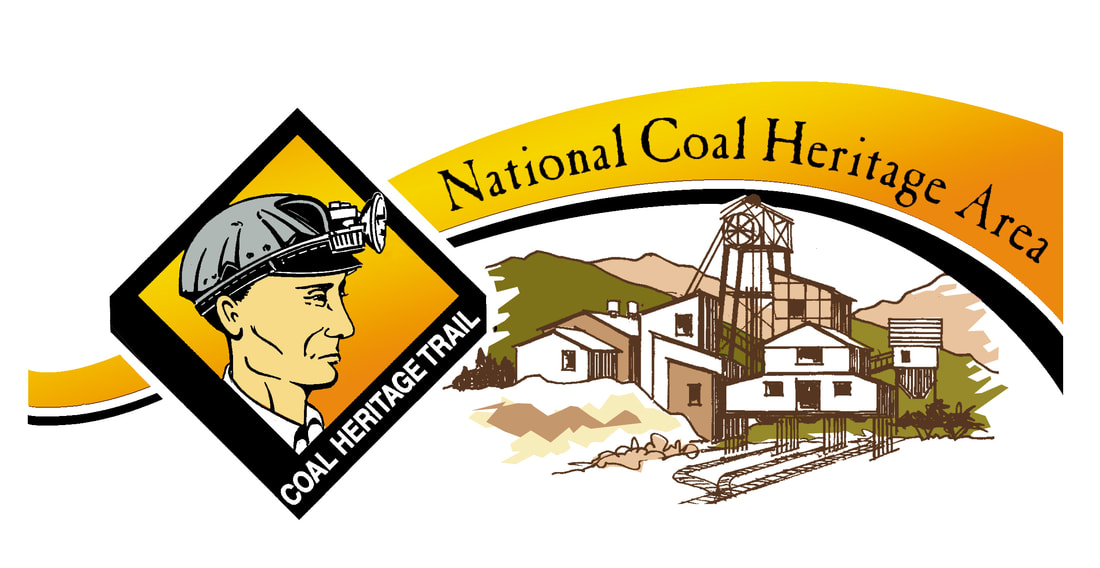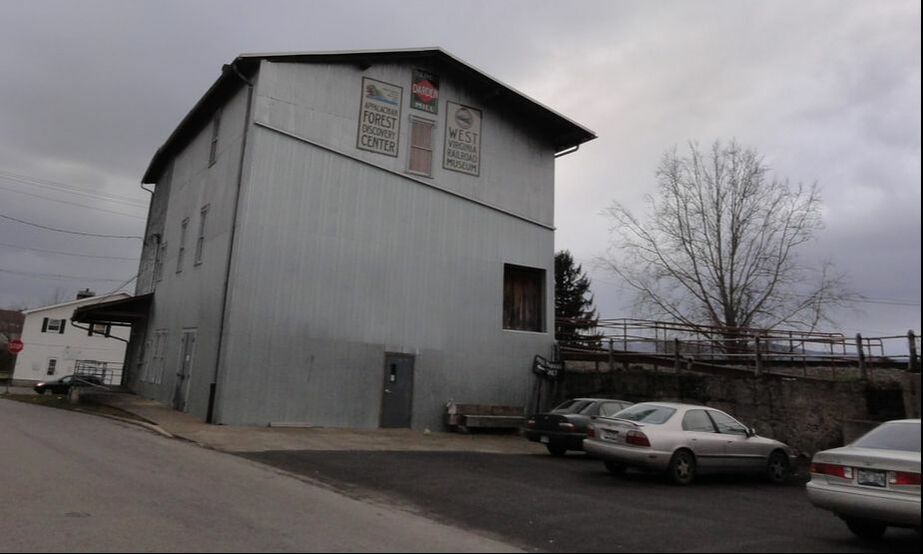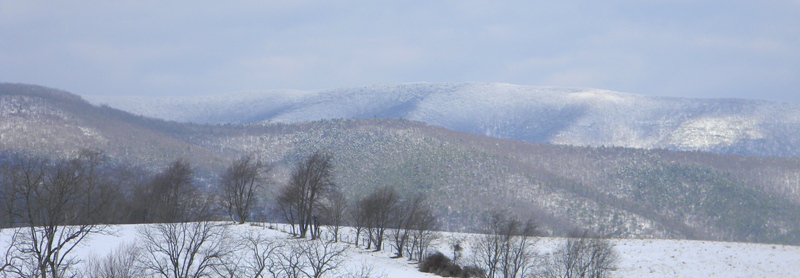|
U.S. Senators Joe Manchin (D-WV), Chairman of the Senate Energy and Natural Resources Committee, and Shelley Moore Capito (R-WV) introduced bipartisan legislation, S. 1258, on Tuesday to extend the authorizations of West Virginia’s National Coal Heritage Area and Wheeling National Heritage Area – which are set to expire September 30, 2021.
“As Chairman of the Senate Energy and Natural Resources Committee, I am well aware of the impacts National Heritage Areas can have on local communities. Extending the authorizations of the National Coal Heritage Area and the Wheeling National Heritage Area will allow us to continue to recognize their significant contributions to our nation and provide an economic boost to the communities around them. This bipartisan legislation will preserve and protect West Virginia’s rich cultural traditions and historic sites so that future generations can enjoy them as we have, and I look forward to it being enacted into law,” said Senator Manchin, Chairman of the Senate Energy and Natural Resources Committee. “Both the Wheeling National Heritage Area and National Coal Heritage Area are important to the culture and scenic beauty of our state. It is essential that we extend their designation as National Heritage Areas to help continue our efforts toward conservation, restoration, and economic development in these regions. I’m proud to introduce legislation that will help boost tourism and revenue in West Virginia, while also helping to expand opportunities for people to enjoy the natural beauty and history that our state has to offer,” Senator Capito said. National Heritage Areas (NHA) are designated by Congress as places where natural, cultural, and historic resources combine to form a cohesive, nationally important landscape. By extending the official NHA designation, the National Coal Heritage Area and Wheeling National Heritage Area can continue to remain eligible for grants and technical assistance from the National Park Service that help create jobs, generate revenue for local governments, and sustain local communities
3 Comments
National Heritage Area designation for Appalachian Forest National Heritage Area became official with the President’s signing on March 12 of S.47, the John D. Dingell, Jr. Conservation, Management, and Recreation Act, the also known as the Natural Resources Management Act.
The Bill also included a wide variety of designations and land management bills from across the country, including the Sportsman Act and permanent reauthorization of the Land and Water Conservation Fund. The bipartisan bill passed in the Senate on February 12, and in the House on February 26, by overwhelming majorities. Sen. Joe Manchin, sponsor of the original Appalachian Forest National Heritage Area Act, and a co‐ sponsor of the Senate Natural Resources Management Act, said “The Appalachian Forest Heritage Area is a treasure that has done a great deal for West Virginia. This national designation is long overdue.” The Appalachian Forest designation bill was also co‐sponsored in the Senate by Sen. Shelley Moore Capito, Sen. Ben Cardin, and Sen. Chris Van Hollen. The companion House bill is sponsored by Rep. David McKinley, with co‐sponsors in the previous session from Rep. Evan Jenkins, Rep. John Delaney, and Rep. Alex Mooney, and in the current session adding co‐ sponsors Rep. Carol Miller and Rep. David Trone. “Creating an Appalachian Forest National Heritage Area will allow us to continue to celebrate and promote the beauty of our state, preserve our heritage and plan for the future,” Rep. McKinley said of the legislation. “National Heritage Areas deliver a significant economic return and helps us showcase the sometimes‐hidden gems of our cultural heritage.” “We are incredibly excited to be finally receiving National Heritage Area designation for the Appalachian Forest,” said Phyllis Baxter, Executive Director of Appalachian Forest Heritage Area, Inc, the coordinating entity for the newly designated area. “We have been working on this for fifteen years, and are so pleased to now be nationally recognized. This designation will increase our visibility to attract tourism, and increase our capacity to help local communities.” National Heritage Areas are designated by Congress as places where natural, cultural, and historic resources combine to form a cohesive, nationally important landscape. With the official national heritage area designation the Appalachian Forest National Heritage Area can earn recognition as being nationally significant, and will have access to National Park Service technical assistance and funding to provide more services to the region. The Appalachian Forest Heritage Area works in 16 counties of West Virginia and 2 counties of western Maryland on conservation, forestry, cultural heritage, tourism and community development. With the overall theme of forest heritage, the initiative works with willing partners to explore and enhance the relationship between the forested mountains and the people who live here. For more information see www.appalachianforest.us, email [email protected], or call 304‐636‐ 6182. U.S. Sen. Joe Manchin, D-W.Va., is praising federal legislative action this week for protecting the Appalachian Forest Heritage Area, which is part of 18 counties including Randolph County.
Manchin, a ranking member of the Senate Energy and Natural Resources Committee, secured the permanent reauthorization of the Land and Water Conservation Fund, the national designation of the Appalachian Forest Heritage Area and an increase in the funding cap for the Wheeling National Heritage Area as part of the Natural Resources Management Act. “I’m proud to have worked with my colleagues on both sides of the aisle to finally permanently reauthorize LWCF so our land management agencies can operate fully and without the fear of losing access to the funding they rely on. The Appalachian Forest Heritage Area is a treasure in Randolph County and this national designation is long overdue,” Manchin added. “By reauthorizing the Land and Water Conservation Fund, this bill supports West Virginia’s heritage and outdoor recreation economy and keeps faith with the important idea that America’s outdoors and public lands are part of who we are as a nation,” said Angie Rosser, executive director of West Virginia Rivers. LWCF is a conservation tool that ensures states and federal public land management agencies are able to protect and conserve our natural resources without relying on taxpayer dollars. In West Virginia, LWCF funded the acquisitions of the Gauley River National Recreation Area, New River Gorge National River and Dolly Sods. Since 1965, more than $243 million in LWCF funds have been spent in West Virginia on more than 500 projects, both on state and federal lands. This includes improvements to local parks and public spaces in 54 of West Virginia’s 55 counties. To read the full article, visit the Intermountain's website at www.theintermountain.com/news/local-news/2019/02/forest-heritage-area-receives-designation/?fbclid=IwAR1sTMTTTLEegcPCRiZrjqIitSA2InvF1267CLT4wF1MFTAPznAV8dW4BKA Join PAWV in supporting the Appalachian Forest Heritage Area (AFHA) in its effort to be designated by Congress as a National Heritage Area. Your expression of support NOW for Appalachian Forest National Heritage Area will help bring this long-sought goal to life. WHAT CAN I DO? Tell your U.S. Representatives and Senators you support Appalachian Forest National Heritage Area designation. Showing them strong grassroots support will inspire action! See HERE for a contact list and HERE for sample letters and talking points. WHY AFNHA? For over 15 years, AFHA has worked for conservation and community development in our 18-county region. AFHA conserves, develops, interprets and promotes a regional network of forest-based resources and experiences, benefiting communities and the environment throughout the highlands of West Virginia and western Maryland. Now is the time to expand these efforts during our spring 2018 support letter campaign. AFHA began seeking National Heritage Area (NHA) designation with the approval of our Feasibility Study by the National Park Service in 2006. For the study, more than 150 different private, government and non-profit agencies as well as individuals wrote in support (see list of letters HERE) of this designation. Today, we need to show that support again. Currently, two bills, Senate Bill 401 and House Resolution 3142, have been introduced in Congress to designate the Appalachian Forest National Heritage Area. This designation will bring national recognition of the importance of the Appalachian Forest Heritage story, as well as technical assistance through the National Park Service and funding for local projects. WHAT IS A NATIONAL HERITAGE AREA? For over 30 years, National Heritage Areas have been telling America’s story. They are designed as a cost-effective way of conserving our nation’s natural and historic resources. This approach has been validated in 49 areas around the country, including two in West Virginia (Wheeling National Heritage Area and the National Coal Heritage Area), that have developed dynamic partnerships among local governments, non-profit groups and businesses. The National Heritage Area program in a nutshell:
Let’s look at figures from one of West Virginia’s NHAs. The National Coal Heritage Area (NCHA) generates $207 million annually in economic impact, supports 2,744 jobs and generates $16.8 million in tax revenue. This economic impact consists of: tourism ($205.3 million), operations ($1.1 million), grant making activities ($419,000), and capital expenditures ($238,000).* The NCHA has been a driver of economic development in that southern West Virginia region and transformed communities through preservation and celebration of their rich coal history. The opportunities for our region are similarly limitless; for we are unique. No other NHA has identified forest heritage as its primary theme. NHA status would provide support and funding for the region to develop interpretation and cultural programs; conserve our unique assets, recognize the role of past, present and future of the forest industry; strengthen our forest heritage identity; and share this amazing legacy with visitors. For the history of Appalachian Forest National Heritage Area effort, including Feasibility Study, see HERE  To support community efforts to preserve, interpret and promote coal heritage resources, the National Coal Heritage Area Authority announces a grant round for eligible projects within the National Coal Heritage Area. The NCHA encompasses 13 counties in southern West Virginia: Boone, Cabell, Fayette, Lincoln, Logan, McDowell, Mercer, Mingo, Raleigh, Summers, Wayne, Wyoming and the Paint Creek and Cabin Creek watersheds in Kanawha County. Organizations eligible for grant awards are legally established non-profit organizations and institutions (recognized by the IRS) and public and governmental organizations including county and municipal governments, state agencies, economic development authorities and educational institutions, including public and private not-for-profit schools. Applicant organizations must provide 50% of the project cost and may request grants ranging from $1,250 to $15,000 with the remainder provided in documented matching funds. Applications are due by 5:00 PM, April 13, 2018 to the NCHA office. The NCHA management plan identifies interpretive themes for the area. Each project must address at least one of the interpretive themes in some manner and could go across several thematic areas. Both interpretive themes and eligible funding categories are listed below. For a full packet of information and to consult about your project, contact NCHA staff - www.coalheritage.org/Contact.aspx Interpretive Themes
Eligible Funding Categories Interpretation and Heritage Programming: (Grant awards range from $ 1,250 - $10,000) Projects must create or further develop interpretive opportunities related to coal heritage within the National Coal Heritage Area incorporating at least one of the interpretive themes. Examples of eligible projects are interpretive brochures and guides, performances and performance spaces, interpretive exhibits, creation of public art exhibits and development of interpretive signs and brochures for walking/biking trails. It can include community or school based heritage education projects. Designs for printed materials, signage design and interpretive plans must be approved by the National Coal Heritage Area Authority before printing or fabrication of signs begins. Exterior interpretive signage must use the graphic design template currently in use by the National Coal Heritage Area. Historical markers will be allowed under this category, but must be a part of the Division of Culture and History’s historical marker program and must include adequate space for a minimum of two vehicles to safely pull off the road. Historic Preservation and Resource Stewardship: (Grant awards range from $ 1,250 - $15,000) Projects in this category must further the preservation, protection, and/or restoration of historic properites, landscapes and cultural resources with the National Coal Heritage Area and be directly connected to the interpretive themes of the National Coal Heritage Area. All structures must be listed on the National Register of Historic Places or determined as eligible for listing by the State Historic Preservation Office. Preservation and restoration of historic structures must adhere to the Secretary of the Interior’s “Standards for Treatment of Historic Properties.” All preservation projects are subject to approval of the WV State Historic Preservation Office and may not proceed until written notice from SHPO is received. Examples of eligible projects are development of a historic preservation master plan for an existing National Register district or structure, structural analysis for the purpose of stabilizing an eligilble structure and interior and exterior rehabilitation. (Contact the State Historic Preservation Office, 304-558-0220 for technical assistance in determining eligibility of structures.) Archives and Historical Record Collection: (Grant awards range from $ 1,250 - $10,000) Grants within this category will serve to increase the public’s access to historical records and documents or to preserve paper-based archival documents. Examples of possible projects include collecting and cataloguing archival documents to be made available to the public and creation of systems to allow on-line access to document images. All work done under this category must focus on improving the public’s access to archival information, but may not include ongoing operational expenses of operating an archival facility. A catalogue of material collected and archived under this grant category must be published and made available to the public either on-line or in print and a copy provided to the National Coal Heritage Area Authority. Greenways, Public Parks and Non-motorized Trails: (Grant awards range from $ 1,250 - $15,000) Grants within this category must focus on creating outdoor interpretive spaces, be open to the general public and be generally accessible to the traveling public. Example of projects could include a trailhead facility that relates to the coal heritage of the area, interpretive materials, water trail access, roadside pull-offs featuring interpretive signage and/or historical markers, gateways to coal communities and non-motorized trails that connect historic resources. Design plans and feasibility studies for these types of projects are also considered to be eligible. In general playgrounds and recreational facilities will not be eligible for funding, unless they contain an interpretive element. Plans for maintenance of the site must be clearly defined with a responsible entity identified. All design plans for approved projects must be submitted to the National Coal Heritage Area Authority for approval before actual construction begins. Educational Activities and Events: (Grant awards range from $1,250 to $2,500) Grants within this category will focus on providing education opportunities within the community or schools. Educational activities should focus on preserving and sharing the history of the region with children, young adults or community members or involving those groups in collecting and preserving history. Eligible activities include: Field trips when combined with other educational activities, art projects that explore the history and culture of coal and coal communities, including drama, literature, photography, visual arts, music, dance, public art projects, special speakers or presentations when combined with other educational activities, historical research and documentation including oral and family histories and digital stories created by students and community members, and workshops or presentations designed to assist communities in preserving and interpreting their history. Congressman David McKinley (R-WV-1) has introduced House Bill 3142 in the U.S. House of Representatives. Co-sponsors are Representatives Jenkins (R-WV-3) and Delaney (D-MD-6). The Appalachian Forest National Heritage Area Act of 2017 will bring national recognition for the organization.
Designation as a National Heritage Area will bring national recognition of the importance of the Appalachian Forest Heritage story, technical assistance through the National Park Service, and funding for local projects. Appalachian Forest Heritage Area (AFHA) has been seeking National Heritage Area designation since 2006. “This designation, should it go through Congress, would create us as a National Heritage Area. There are 49 other National Heritage Areas around the country, including two others in West Virginia. It would give national recognition of the national significance of our story,” said AFHA Executive Director Phyllis Baxter. A companion bill, S. 401, was introduced earlier this year by lead sponsor Senator Manchin (D-WV) and co-sponsors Senators Capito (R-WV), Cardin (D-MD), and Van Hollen (D-MD) . It is currently referred to the Committee on Energy and Natural Resources. Read the full story at 12 News – WBOY – http://www.wvalways.com/story/35818974/mckinley-supports-national-recognition-for-afha Show your support for these bills by thanking your Senators and Representatives for their support, or ask them to co-sponsor the legislation if they have not already done so. Find contact information at the following link: https://www.congress.gov/members?q={%22congress%22:%22115%22} In President Trump’s FY2018 budget, he proposes to eliminate funding for the National Heritage Areas. The 49 National Heritage Areas across the country – two of which are in West Virginia (Wheeling and Coal) – preserve and revitalize cultural, historic and natural resources, delivering recreational and educational opportunities to visitors, residents and entire regions. Through innovative public-private partnerships, National Heritage Areas have effectively leveraged federal resources, attracting an average of $5.50 of private funding for each dollar appropriated.
Heritage Areas have a proven record of fostering job creation and advancing economic, cultural, historic, natural, and community development. In addition to creating jobs, National Heritage Areas generate valuable revenue for local governments and sustain communities through revitalization and heritage tourism. Lastly, Heritage Areas have undergone rigorous independent evaluations by the National Park Service which document the program’s worth. Please join PAWV in calling your Congressmen by March 24 and request that they ask appropriators provide robust funding for the National Heritage Area program in the FY 18 budget. Robust funding for this critical initiative will enable communities and regions to effectively tell the stories of their past for the benefit of present and future generations. District 1 – Congressman David McKinley – (202) 225-4172 District 2 – Congressman Alex Mooney – (202) 225-2711 District 3 – Congressman Evan Jenkins – (202) 225-3452 You can also encourage your Congressman to co-sponsor HR 1002 – National Heritage Area Program Bill, which would establish a designated program for National Heritage Areas within the National Park Service, including clear criteria for designation and evaluation. According to the bill sponsors, Congressmen Charles Dent (R-PA) & Paul Tonko (D-NY), “National Heritage Areas are considered one of the Department of the Interior’s most cost effective initiatives, relying on a public/private partnership in which every federal dollar is matched with an average of $5.50 in other public and private financing.” Appalachian Forest Heritage Area is one step closer to national recognition, thanks to the introduction in the Senate of the S. 401 Appalachian Forest National Heritage Area Act of 2017. Introduced by U.S Senators Joe Manchin (D-W.Va.), Shelley Moore Capito (R-W.Va.), Ben Cardin (D-Md.) and Chris Van Hollen (D-Md.), the bill would designate the 18 county region in the highlands of West Virginia and western Maryland as a National Heritage Area.
“We are incredibly excited to have our designation bill introduced in the Senate this early in the Congressional session,” said Phyllis Baxter, Executive Director of Appalachian Forest Heritage Area. “We thank all four of our Senators for their support and look forward to movement on our bill as the session progresses.” Appalachian Forest Heritage Area (AFHA) has been seeking National Heritage Area designation since approval of their Feasibility Study by the National Park Service in 2006. Designation as a National Heritage Area will bring national recognition of the importance of the Appalachian Forest Heritage story, as well as technical assistance through the National Park Service and funding for local projects. AFHA works only with willing partners, and designation as a National Heritage Area does not change any land management and does not add any new regulations. Appalachian Forest Heritage Area (AFHA) has been working for over 15 years to promote rural community development through heritage tourism and forest conservation. As a heritage area, AFHA works across county and state lines with communities, agencies and non-profit groups. AFHA builds partnerships with a wide variety of interest groups, including forest industry, public lands agencies, and environmental groups, historic and cultural sites, and tourism and community development efforts. Recent accomplishments include the Appalachian Forest Discovery Center in downtown Elkins, new on-line thematic story map tours, and conservation awareness outreach. AFHA sponsors a 38 member AmeriCorps program which provides assistance to local site partners on conservation, community development, heritage tourism, and historic preservation projects. For more information about Appalachian Forest Heritage Area, see www.appalachianforest.us , call 304-636-6182 or email afha@appalachianforest.us. For the Senate press release, see https://www.capito.senate.gov/news/press-releases/capito-manchin-cardin-van-hollen-introduction-legislation-to-designate-appalachian-forest-heritage-area |
News and NotesCategories
All
Archives
May 2024
Subscribe to our mailing list to receive e-news updates on historic preservation news and events in West Virginia.
|
Get Involved |
Programs |
Contact UsPreservation Alliance of West Virginia
421 Davis Avenue, #4 | Elkins, WV 26241 Email: [email protected] Phone: 304-345-6005 |
Organizational Partners:
© COPYRIGHT 2022 - PRESERVATION ALLIANCE OF WEST VIRGINIA. ALL RIGHTS RESERVED.



 RSS Feed
RSS Feed



